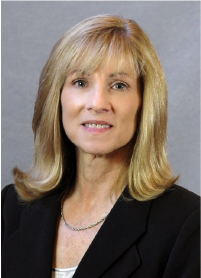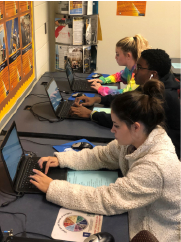
July 2020 Quarterly Newsletter
COVID-19: We’re here to serve you
During this unprecedented time, we’re here to continue serving students, parents, and counselors.
As we find ourselves in an unprecedented situation surrounding coronavirus 2019 (COVID-19), the Georgia Student Finance Commission (GSFC) is committed to making sure we remain open for business with minimal disruption of service to our customers.
We’ve created a COVID-19 webpage that contains important updates related to any changes due to the coronavirus, as well as information on how to connect with the GSFC team during this time. We encourage you to save or bookmark this webpage so that you may refer to it often for new information.
Important Next Steps for Class of 2020 High School Seniors
Graduating seniors have important next steps regarding their GPA, HOPE or Zell Miller status, and FAFSA.
As Class of 2020 high school seniors graduate and prepare for their transition to college, it’s important that students review their HOPE-calculated GPA, check their HOPE or Zell Miller Scholarship status, and complete their FAFSA.
Students are encouraged to review our GAfutures webpage, which contains step-by-step instructions on how they can review those items.
FY 2021 State Program Regulations
The 2020 Legislative Session included several bills related to the programs GSFC administers.
The Georgia Student Finance Commission (GSFC) and the Georgia Student Finance Authority (GSFA) boards approved the 2020-2021 program regulations at their May 1, 2020 board meeting. The program regulations are effective July 1, 2020. The 2020-2021 program regulations and an executive summary is posted at gsfc.org. Additionally, a link to the program regulations can also be found at GAfutures.org under “Shortcuts.”
In addition to the changes made to the program regulations for clarity, listed below is an overview of the regulatory changes that affect high schools and postsecondary institutions as they administer state program requirements:
- Revised – GSFAPPS application valid for 10 years versus the previous seven-year length. The state application for the following programs:
- HOPE Scholarship Public and Private
- Zell Miller Scholarship
- HOPE Grant
- Zell Miller Grant
- Tuition Equalization Grant
- Emergency regulation due to COVID-19 to assist Class of 2020 affected unaccredited home study completers and graduates of non-eligible high schools:
- Students since March 14, 2020 unable to sit for the ACT or SAT due to cancellations since March 2020 are given the opportunity to test through December 30, 2020.
- Upon earning a qualifying test score of 75th Percentile or 93rd Percentile, may be retroactively awarded the HOPE Scholarship or Zell Miller Scholarship, respectively.
- Emergency regulation due to COVID-19 to assist Class of 2020 affected eligible high school graduates and accredited home study completers:
- Students since March 14, 2020 unable to sit for the ACT or SAT due to cancellations since March 2020 are given the opportunity to test through December 30, 2020.
- Students with a qualifying GPA and rigor credits may be awarded HOPE Scholarship initially, upon earning a qualifying test score, may be retroactively awarded Zell Miller Scholarship.
- Students may apply for a Student Access Loan for the Fall term 2020 only totaling the difference between HOPE Scholarship award and Zell Miller Scholarship award.
Award Amounts
Updates regarding FY 2021 award amounts have been published. Visit the award amounts page on gsfc.org to learn more. You may also read the Dear Colleague Letters for additional information on award amounts, program regulations, and invoicing.
Dual Enrollment Update
Governor Kemp signed HB 444 into law on April 28, 2020. An overview of the Dual Enrollment Program regulations for FY 2021 includes:
- Eligibility of courses – Core academic areas English, math, science, social studies and world (foreign) languages categories which qualify for the high school HOPE Scholarship eligibility and Career, Technical and Agricultural Education (CTAE) courses aligned with GaDOE career clusters and pathways
- Courses in areas such as: fine arts, health, physical education and college survival or prep areas are no longer eligible for funding. The Courses Directory has been updated.
- Grade Level Eligibility – Ninth graders are no longer eligible for Dual Enrollment funding. Eligibility for tenth graders depends on their status. Eleventh and twelfth graders are eligible for participation at any participating postsecondary institution and enroll in any approved core or CTAE courses.
- A funding cap is implemented effective Summer term 2020. New students will have a 30 semester/45 quarter hours funding cap. Continuing students with 18 semester/27 quarter or less hours prior to Summer term 2020 are subject the 30 semester/45 quarter hour funding cap. Students with 19 semester/29 quarter or more hours prior to Summer term 2020 have an additional 12 semester/18 quarter hours.
- Effective Summer term 2020, retaking a course is no longer eligible for funding, and after withdrawing from two courses, a student is no longer eligible for Dual Enrollment funding.
- Public school students pursuing high school graduation option B during Spring term 2020 are not subject to a funding cap.
Additional Program Regulations
- The REACH Program continues to have provisions subject to available funding:
- The number of students participating school systems may select and the proportionate share of funding required to be provided are based on available funds. School systems will be notified annually of the approved funds in the Annual Student Selection Approval form.
- Promissory Notes for the Student Access Loan and all Service Cancelable Loan Programs no longer have a Notary requirement.
- GSFC may conduct compliance reviews of eligible high schools, home study programs, in addition to eligible postsecondary institutions participating in the Dual Enrollment program.
- Dual Enrollment students, who have reached the funding cap, may be eligible for HOPE or Zell Miller Grant and HOPE Career Grant, based on student type and GPA: Must meet all HOPE Grant eligibility requirements
Lynne Riley Confirmed President of GSFC

Lynne Riley, who has served in various roles in public service in state and local government, was recently confirmed the agency’s president.
The Georgia Student Finance Commission (GSFC) Board of Commissioners voted to have Mrs. Riley assume the role, where she will also serve as the president of the Georgia Student Finance Authority (GSFA) and the Georgia Higher Education Assistance Corporation (GHEAC).
Read the official press release to learn more.
The Georgia General Assembly Completes Unprecedented 2020 Legislative Session
The House and Senate reconvened in June after the session was suspended in March due to the coronavirus.

Lawmakers returned to the capitol on Monday, June 15th, to resume the 2020 legislative session. The Georgia General Assembly was forced to suspend their work on March 13th because of the coronavirus.
While hundreds of bills remained available for consideration, the most important order of business was passing a balanced budget for the upcoming Fiscal Year 2021, which began on July 1. The House passed their version of the FY 2021 budget in March, but revenue shortfalls caused by the COVID-19 pandemic required lawmakers to reduce expenditures because the state can’t spend more than it takes in under the Georgia Constitution. The House and Senate gave final approval to the $26 billion spending plan for FY 2021 on June 26 (Sine Die). While GSFC’s state-funded programs were reduced in accordance with other state agencies, lottery-funded programs were exempted.
The most high-profile bill related to financial aid during the 2020 legislative session was HB 444 which had already received final passage before the legislative session was suspended. House Bill 444 makes several important changes to the state-funded Dual Enrollment program, including changes to approved courses, eligibility by grade level, and a maximum funding cap. The Governor signed House Bill 444 into law on April 28th and the new changes are effective beginning this summer term 2020.
2019 Apply to College Month
Did You Know?

42,449 college applications were submitted as part of 2019’s Apply to College Month. This is a record number for Georgia since the campaign began in 2008, and it is a 26% increase from 2018. Special thanks to GSFC staff and the 164 high schools that participated!
Request for K-12 Contact Information Verification
The GSFC Outreach team is requesting that K-12 contacts verify their contact information.
GSFC will host several upcoming virtual events and continue to communicate updates related to program regulations, GAfutures, and much more.
Any K-12 contacts who wish to make updates to their records should contact their GSFC Outreach representative or contact our offices:
Phone: 770.724.9000 Toll Free: 800.505.GSFC K-12 email: [email protected]
Resources
Find a GSFC Financial Aid Event
Dear Colleague Letters & Updates
Do you have any suggestions for future newsletter articles or questions about this issue? Email us at [email protected].